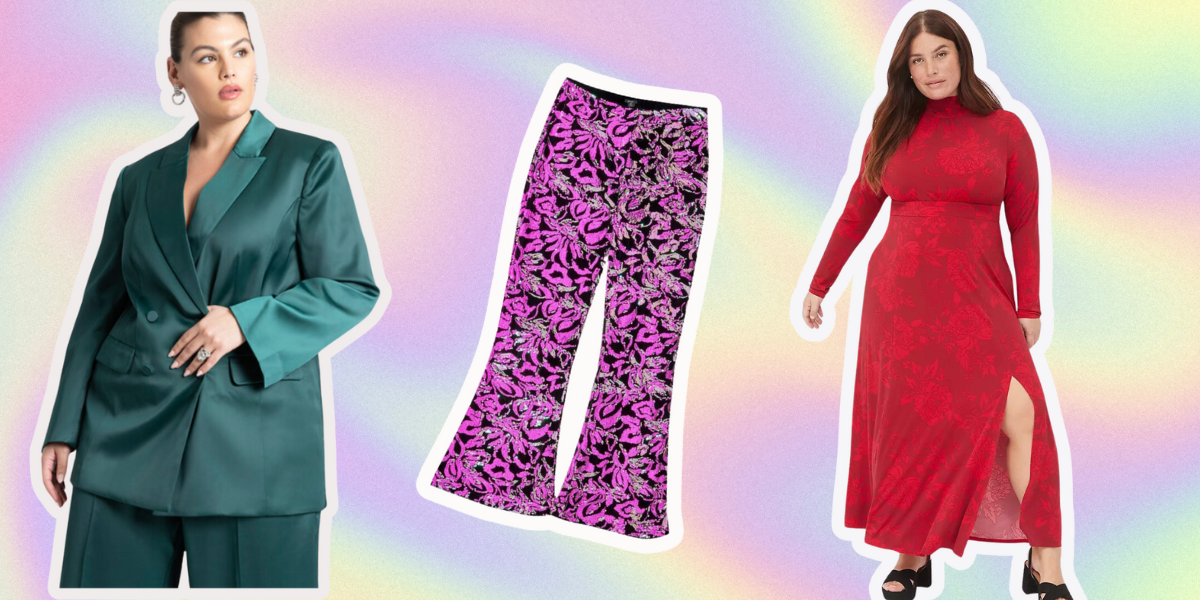Planning my big queer wedding over the past year has been full of joy, excitement, and of course stress, but stress that ultimately was easy to navigate alongside my loving partner and all the loved ones who have chipped in to help out in small and big ways. But planning a queer wedding isn’t without its complications. As I do with most parts of my life, I approached wedding planning in a loudly queer way…with some caveats that surprised myself at first. While I never fully re-closeted myself by any means, there were times I obscured my queerness or left it unspoken, something rare for someone as publicly queer as I am. But I felt some small shifts in my own relationship to queerness during this process, and while some of this was in service of safety and self-preservation, it was also just a shift in personal priorities. None of this felt bad. It just surprised me, and now I’m attempting to understand it better.
When the woman at the bridal boutique asked if the groom was Indian like me, my mother interrupted to correct her use of he/him pronouns and tell her our wedding would have two brides. I can’t complain about my mother’s supportiveness. At one point in my life, perhaps it would have meant a lot to me to hear her affirm my queerness so adamantly. But in this moment, I felt an ambivalence toward my mother’s correction, deepened by the fact that my future wife actually does use all pronouns. So did the woman really need to be corrected? And did it really matter if this woman knew the wedding would be a queer one? Of course I didn’t want any outright homophobes involved in my wedding planning, but while this felt important to me when selecting vendors (and in fact, we worked extra hard to find specifically queer vendors for the big ticket items like catering and photography), it felt less important to me in other steps of the process. I told my mother afterward she didn’t need to correct anyone again for the remainder of the shopping process. There are other, more meaningful ways she can show up for me as an ally. This didn’t matter to me as much.
The wedding planning took place almost entirely in Florida, where the wedding will also take place. There are people in my life who are likely surprised by the fact that I’m getting married in Florida, but make no mistake: I don’t see this as a drawback of my wedding or as a compromise with my partner, who calls this place home. It never crossed my mind that we would marry anywhere else. And in fact, I see it as a privilege to get married here. Gay marriage has been legal in Florida for less than a decade, and presently there are significant legislative attempts to restrict the rights and lives of LGBTQ people in the state, especially trans people. It is a privilege to be able to make a big declaration of our love in the place my partner loves and that I have come to love. But over the past few years of living here, I’ve also learned how to move through spaces where it might not always be the best idea to be my gayest self.
You get used to making these calculations, and I found myself making them during the wedding planning process. It wasn’t out of fear so much as wanting to maintain a level of joy and confidence that would have been undermined by any negative reactions, and I know this too is a privilege. I thought perhaps I’d have more shame about these moments where I hid my queerness and the queer nature of the wedding from strangers. In other contexts, I’ve been so celebratory of and adamant about shouting the wedding’s queerness from the rooftops. My love and I have been calling it our Big Gay Florida Wedding, literally. But context matters, and it makes sense to be loud in some moments and quiet in others. I don’t owe strangers this part of myself all the time. And I’m more self-assured in my own queerness than I used to be. I no longer need to say it out loud to make it true, the way I sometimes felt in the past.
I value and desire queer visibility, but I also recognize its limits. I am proud of the way my partner and I have approached planning this wedding. It feels wholly us. I don’t feel sad or regretful about the few times I didn’t declare my queerness along the way; they don’t take away from the experience, whereas if I’d said something and it had gone wrong, it certainly would have. Beyond the specific scope of planning a wedding, you always have the choice about how and when and where you express your queerness. Eschewing scripts and expectations is such a fundamental part of being queer, and sometimes it means even changing the scripts we’ve come to believe are essential to queerness. We say, often, how coming out is a repeated act rather than a one-and-done situation, but it’s just as important to talk about the moments when you don’t want to or feel a need to come out.








Comments
Thank you so much for this and all your thoughtful writing about queer life in Florida <3